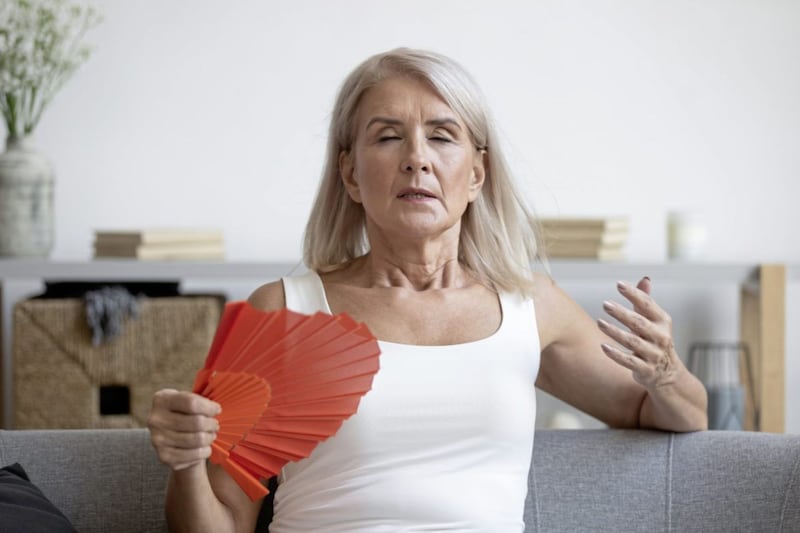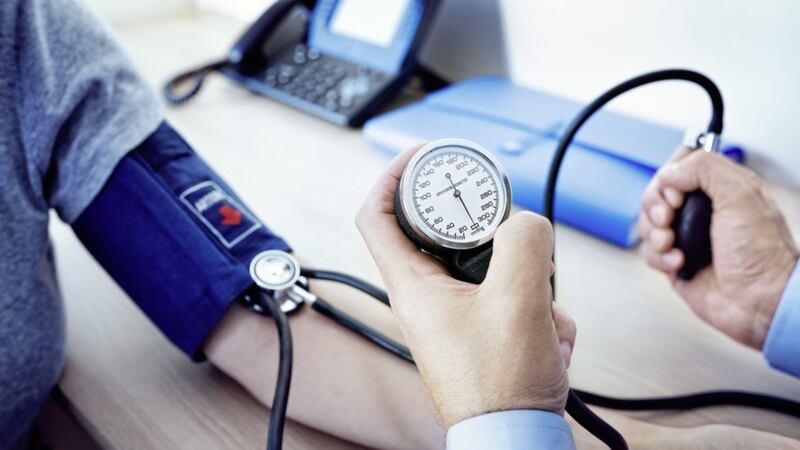Q: A FEW years ago there was a significant difference in the blood pressure in each of my arms, though at the time my GP and nurses didn't say anything.
I mentioned this to a new GP who referred me to a cardiologist, but as I had no symptoms they said they didn't need to see me. What advice could you give for this? I am 77.
PR
A: AS YOUR new GP has rightly identified, a difference in the blood pressure in each arm is something that ought to be investigated.
This is because a discrepancy of 15 mmHg in systolic blood pressure is associated with a raised risk of cardiovascular disease and of dying from a heart attack.
When we take a blood pressure reading, it provides two measurements: the first, or top, number is the systolic blood pressure - the pressure in the major arteries when the heart contracts.
In young, healthy people, the arteries have elastic walls, but as we age these gradually accumulate cholesterol deposits, making them less flexible.
The second, or bottom, figure in a reading is the diastolic blood pressure, which measures blood pressure in between heartbeats.
A difference between the blood pressure in the arms is a sign that the arteries are more diseased on one side (the blood pressure is raised as the blood has to be forced through).
It is reassuring that the consultant didn't feel the need to see you, but you should still do all you can to protect your heart and brain from the consequences of cholesterol build-up.
As well as looking at your lifestyle and diet, this means ensuring your type 2 diabetes and underactive thyroid, which you mention in your longer letter, are well controlled, as these can both contribute to arterial disease. I'd recommend speaking to your GP about this.

Q: FOR A long time I've had random sweats every day, affecting only my face. I am now 69 and went through the menopause at 52 - why do you think this is still happening?
I had bariatric surgery two years ago for type 2 diabetes (I still take metformin, but it's more of a preventative exercise), but the sweats predate this.
DM
A: I AGREE that the sweats you describe are probably hormone-related, triggered by the menopause. They may also be linked to your recent surgery.
Many menopausal women experience hot flushes and sweats. This is because oestrogen levels - which fluctuate dramatically during the menopause - affect the hypothalamus in the brain, which is responsible for temperature.
As a result, the body becomes more sensitive to temperature changes.
As the experiences you describe have lasted for so long after menopause, they are undoubtedly related to changes in body fat.
In post-menopausal women, oestrogen is produced in fat tissue (but only a fraction of the amount once secreted by the ovaries).
Fat cells also store the hormone, and it is released when fat is lost due to dieting or surgery.
As well as body fat, other factors affect oestrogen levels. For instance, the way body fat is broken down is complex but inextricably linked to the gut microbiome - the trillions of bacteria that live in the intestine and play a role in many aspects of our body.
That, too, will have undergone changes following your bariatric surgery - and increased intake of nutrients (you mention a strict supplement routine in your longer letter) will also play a part.
I suspect eventually these symptoms will settle post-surgery, but this might take more time.
The most important message here is that, apart from the discomfort you describe, the symptom is not unhealthy and, if possible, it's worth focusing on the triumph of your weight loss and type 2 diabetes management.
© Daily Mail








